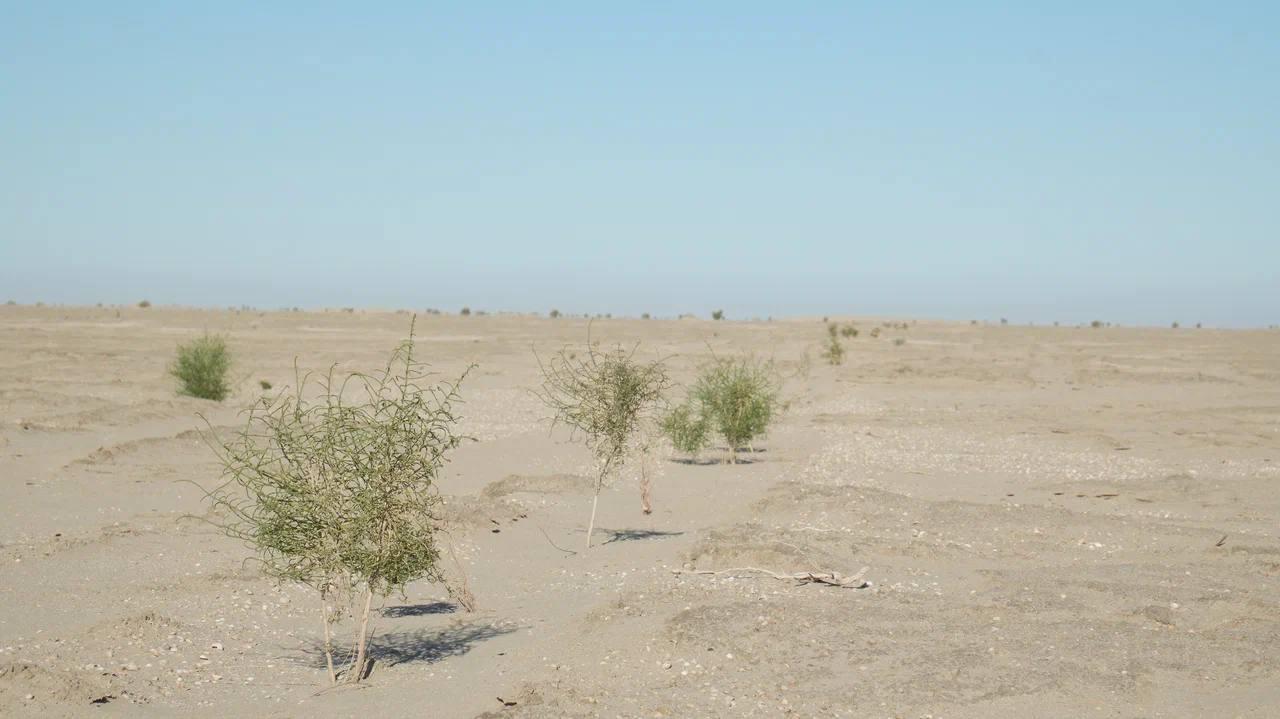A major forest nursery capable of producing up to 3 million standardized saxaul seedlings annually has been completed on the former seabed of the Aral Sea.
The new facility has become a cornerstone of the country’s large-scale initiative to restore the region’s ecosystem and combat desertification.
Located in the town of Kazaly, the nursery was officially commissioned in November 2024. It spans 33 hectares, with 10 hectares dedicated to seeding. Saxaul seeds have already been sown, laying the groundwork for future reforestation efforts across the dried seabed of the Aral.
“The new nursery will significantly reduce transportation costs and allow for the cultivation of seedlings that are better adapted to the harsh, arid conditions of the Aral region. In addition, another specialized nursery is currently under construction directly on the former seabed. This facility will cover 15 hectares and is expected to produce 1.5 million seedlings annually. Drilling work is underway to ensure irrigation, and modular housing for staff has already been installed. Construction is proceeding on schedule,” the Ministry of Ecology of Kazakhstan reported.
The seedlings produced at the Kazaly nursery are being used to restore vegetation across vast areas. In 2025 alone, reforestation efforts covered 11,800 hectares, supported by the Kazakh-French joint venture “Katco.” Similar planting efforts in 2023 restored an additional 4,000 hectares. All plantings follow scientifically based methods using standardized black saxaul seedlings.
The development of this infrastructure is backed by scientific research. A branch of the Kazakh Research Institute of Forestry and Agroforestry has been established in Kyzylorda, where researchers focus on improving silvicultural practices and increasing seedling survival rates in the region.
At the same time, efforts are underway to designate the newly forested areas as specially protected natural territories. Plans are in motion to establish a state forest nature reserve Aral Ormany on the basis of the Aral forestry enterprise, which would ensure long-term protection of the restored woodlands.

